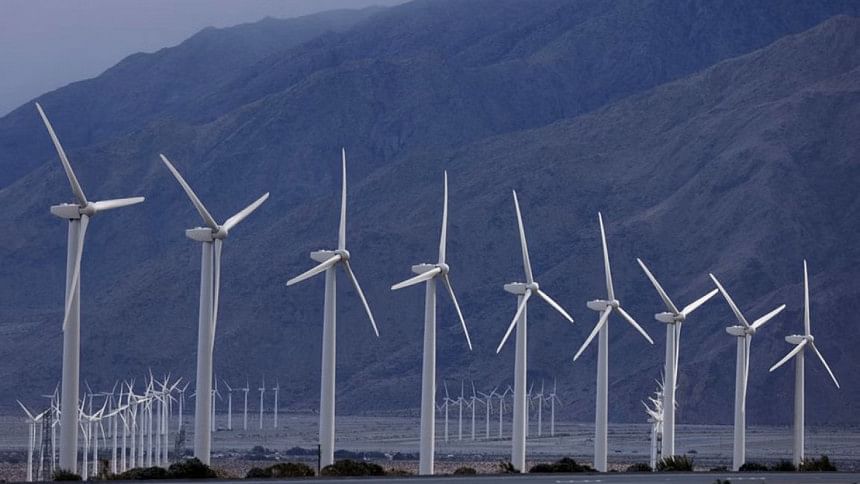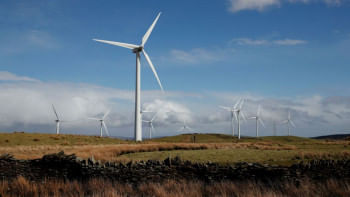Sustainable finance can catalyse Bangladesh’s renewable energy sector

Bangladesh has been a shining example in numerous macroeconomic and social parameters. Based on research by Standard Chartered, it is forecasted to become the 23rd largest economy (measured by market exchange rate) by 2030. This trajectory has been achieved on the back of the nation's stable government, sustained infrastructure investment, and a strong, growing domestic demand.
A key enabler of this growth has been the remarkable progress in increasing its electricity access rate from just 47 percent in 2009 to 100 percent in 2022. But with progress comes a growing appetite for power—with peak demand expected to grow at an annual growth rate of 6.8 percent till 2040.
According to the Bangladesh Power Development Board (BPDB), 55 percent power generation was from gas in FY2021-22, followed by 27 percent from furnace oil, nine percent from power import and only 0.4 percent from renewables. This dependence on imported fossil fuels exposes the country to price volatility and environmental risks. At the same time, Bangladesh has committed to reducing carbon emissions by 22 percent within 2030 under the Paris Agreement, which also includes an unconditional emission-reduction commitment of 6.7 percent. To achieve these goals, investment in renewable energy sources will be vital.
Conventional finance alone will not help our nation to achieve its full potential. This is where sustainable finance can play a key role. For example, green bonds, green loans or green funds can provide low-interest or concessional financing for renewable energy projects. Risk mitigation instruments—such as guarantees, insurance, risk sharing with multilateral agencies or hedging products—can protect investors and developers from currency fluctuations or natural disasters. Blended finance instruments, such as grants, concessional loans or equity investments, can leverage public funds to mobilise private capital for renewable energy projects.
Many financiers prefer financing renewables over fossil fuel-based power generation. This is already happening around the world—not just in developed economies. In sub-Saharan Africa, the World Bank's Scaling Solar programme has helped make privately funded grid-connected solar projects operational at competitive tariffs. In Latin America, the Inter-American Development Bank created the Sustainable Energy and Climate Change Initiative, which acts as "start-up instrument" for climate investments.
Bangladesh has been one of the first movers among emerging markets in designing policy regulations and interventions to build a greener and more sustainable financial system. The Bangladesh Bank introduced policy guidelines for green banking in 2011 and has been implementing prudential regulations to secure financial sector resources towards sustainability goals. The taxonomy for green and sustainable finance was introduced in 2020, which supported financial institutions nationwide to identify green and sustainable sectors and mobilise capital therein. A number of local and foreign currency refinance schemes were introduced to provide stable and lower-cost funding to enable green finance.
The government has conducted a comprehensive assessment of renewable energy technologies in consultation with the relevant stakeholders. This is an area where Bangladesh has already achieved great success, but there remains the opportunity to scale up. There are challenges to address, such as high upfront costs, high generation cost, scarcity of non-cultivable land, ownership challenges for available land, weather and terrain challenges. Further policy incentives, such as feed-in tariffs, tax breaks, subsidies and minimum offtake guarantee would further accelerate investments in this sector.
Developing the capital markets in Bangladesh is foundational to implementing diverse instruments and platforms for raising and investing funds for sustainable finance. The domestic green bond market holds promise, but it requires enabling actions from government agencies and regulatory authorities, such as developing national guidelines and standards on green bonds, creating a pipeline of green projects, building awareness and capacity among issuers and investors, and providing financial support and risk-sharing mechanisms.
Bangladesh has achieved several milestones in recent times, with Standard Chartered originating the country's first sustainable trade finance, first-ever sustainable bond, and first green bond for its corporate clientele. The bank supported the development of the first utility-scale solar power plant through a pioneering deal—one that created a new template for private sector renewable energy operators across the nation. The country has come a long way over the last decade and can be seen today as a global model of sustainable growth. For continued growth and inclusive prosperity, our nation has to concurrently respond to the realities of climate change and the need to fuel rapid development. Sustainable finance and renewable energy are two key pieces of this puzzle, and they could catalyse the next chapter of Bangladesh's growth.
Enamul Huque is head of Client Coverage, Corporate, Commercial and Institutional Banking at Standard Chartered Bangladesh.
Views expressed in this article are the author's own.
Follow The Daily Star Opinion on Facebook for the latest opinions, commentaries and analyses by experts and professionals. To contribute your article or letter to The Daily Star Opinion, see our guidelines for submission.

 For all latest news, follow The Daily Star's Google News channel.
For all latest news, follow The Daily Star's Google News channel. 









Comments